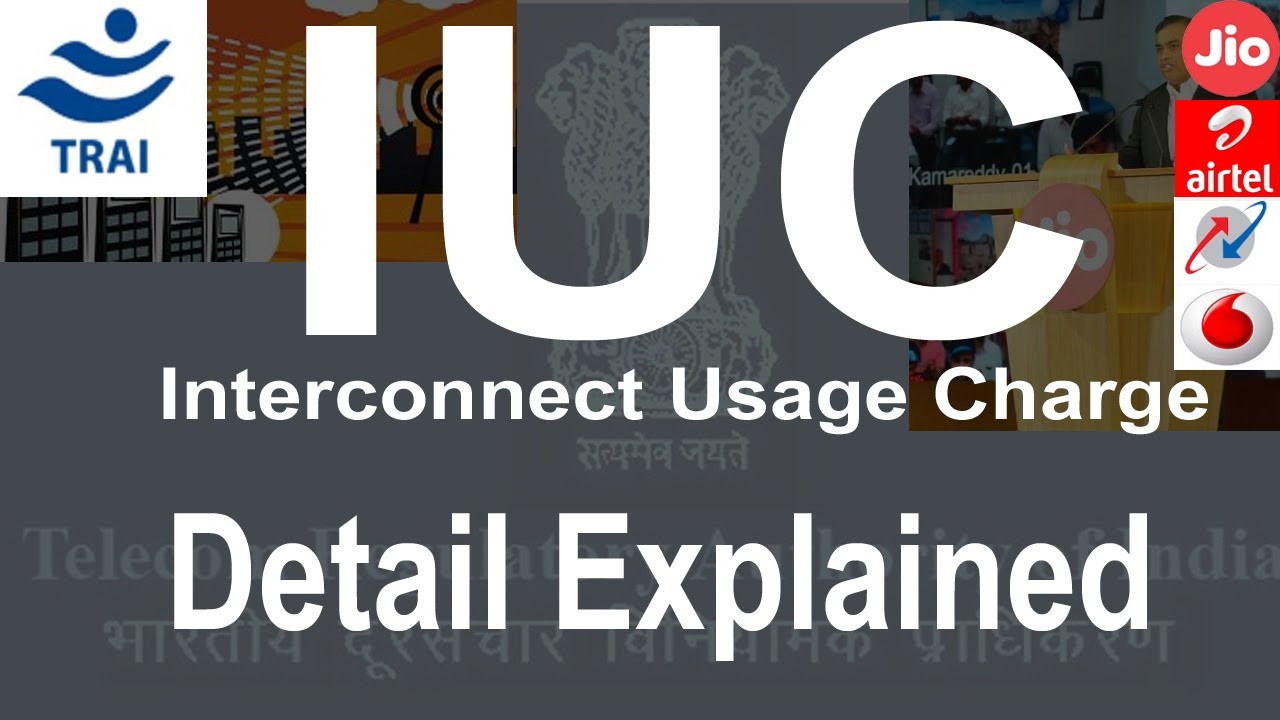
The Telecom Regulatory Authority of India (TRAI) has slashed Interconnection Usage Charges (IUC) from 14 paise per minute to 6 paise per minute from Oct 1, 2017.
TRAI has also decided to abolish the IUC regime completely by 2020 and move to a Bill and Keep (BAK) regime.
What is Interconnection Usage Charges (IUC)?
IUC is a charge paid by the Telecommunication service provider (TSP), whose subscriber makes a call, to the Telecommunication Service Provider, whose subscriber receives the call. To illustrate- If I make a call from my Jio phone to my friend who is an Airtel subscriber, Jio will pay an amount to Airtel. This is IUC.
IUC is applicable only on voice calls made via mobile phones. For other types of calls like WhatsApp, Skype, no interconnection charge is applicable.
What is Bill and Keep regime (BAC)?
In the BAC regime, no interconnection charge is levied. The Telecom service providers only keep a record of incoming calls on their network.
The TRAI wants the telecommunication system to move to BAC by 2020.
What purpose does the IUC serve?
The Telecom service providers (TSPs) have made investments in telecom infrastructure. IUC is meant to compensate the TSPs for receiving a call on their network.
However, the direct cost incurred in receiving calls from other networks is close to zero. TSPs invests in infrastructure to enable customers to make calls. Receiving calls is just incidental to making calls.
The other objective of IUC is to incentivise TSPs to provide seamless connectivity to the users of the different networks.
Why has TRAI cut IUC?
The Telecom regulator has been progressively cutting IUC. It was lowered to 14 paise in 2015. Now, it has been reduced to 6 paise.
TRAI contends that lower IUC will incentivise TSPs to upgrade to new technology like voice-over (which has no IUC) and also adopt 4G which is more cost-efficient.
The lower IUC will also favour the new entrants and further competition in the market.
Lastly, it will benefit the customers through a reduction of tariffs.
How will this decision affect the players in the telecommunication sector?
It is a blow to big telcos like Airtel, Vodafone and Idea. It has been estimated that there will be a collective loss of Rs.5000 crores to these telcos. This is because they have a huge network with almost 60 % of the telecom subscribers. Therefore, the calls are more likely to terminate on these networks. They are net-receivers of IUC.
New entrants and smaller telcos like Reliance Jio, RCom, Aircel, MTNL stand to gain around 2000-3000 crore as they have to pay lesser IUC.
Conclusion
The reduction in IUC has come at a time when the telecom sector is distressed and reeling under the pressure of a huge debt. Telcos like Airtel have already invested in rural infrastructure and have paid huge prices to the Government for 2G spectrum.
The TRAI has been slashing IUC as it favours smaller entrants. But, now it will favour the giant player (Jio) that has entered the market.
It will enable Jio to continue with its discounted pricing strategy. This will threaten the existence of incumbents in the telecom sector.
All said and done, it has been argued the decision by TRAI is pro-competition and will benefit the industry and the customers in the long run.
References:
//www.livemint.com/Opinion/G6lbEWR55noF64okaz0USM/The-case-for-reducing-IUC-in-the-telecom-sector.html
//www.livemint.com/Industry/BVkgFHMKyQHCblCWEcuY8L/IUC-cut-An-aggressive-Reliance-Jio-a-big-worry-for-Airtel.html